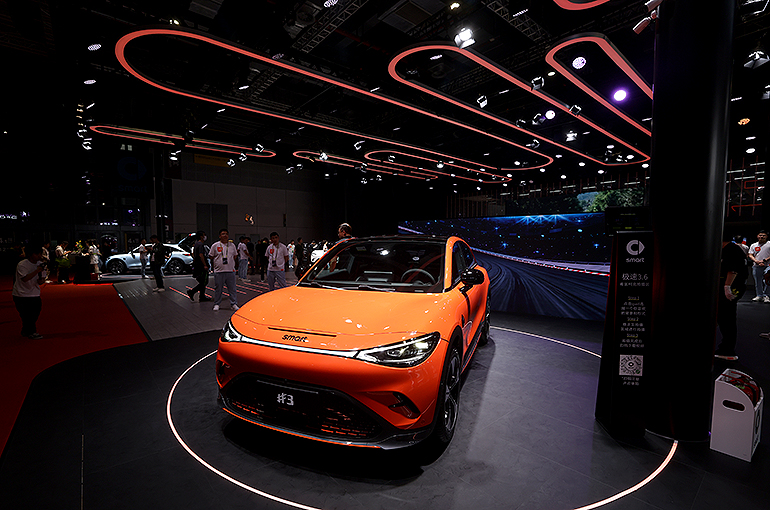 Mercedes-Geely EV Brand Smart Auto to Enter Malaysia, CEO Says
Mercedes-Geely EV Brand Smart Auto to Enter Malaysia, CEO Says(Yicai) Sept. 26 -- Smart Automobile, the electric vehicle joint venture of Mercedes-Benz and Geely Holding Group, will make Malaysia the bridgehead of its southern expansion, according to Chief Executive Officer Tong Xiangbei.
Smart Auto's new energy vehicles are now exported to Malaysia, and the next step will be to set up manufacturing bases overseas, Tong recently told Yicai.
The automaker has a two-track global strategy this year, Tong noted. One track is a ‘southward expansion’ pushing into Oceania and Southeast Asia, while the other focuses on ’making progress westward’ by targeting the Israeli market first, followed by other Middle Eastern markets.
Daimler, the parent company of Mercedes-Benz, and Hangzhou-based Geely unveiled the joint venture to relaunch Smart Auto in 2019, with the aim of making the electric vehicles in China for global markets.
Smart Auto and Malaysian carmaker Proton Holdings inked a non-binding agreement on Sept. 19 to deepen their cooperation, including exploring the feasibility of building production capacity overseas. Moreover, Ningbo-based Smart Auto began pre-sales of its first right-hand drive Smart Elf #1 model in Malaysia, with deliveries planned to start in the fourth quarter.
“Southeast Asia’s auto markets are similar to China’s several years ago, with NEVs still in their infancy,” Tong noted. In Malaysia, NEV sales were less than 3,000 last year, with a penetration rate of only 0.4 percent, he said.
“Some objective factors such as the lack of charging infrastructure and low oil prices, fettered the explosive growth of the Southeast Asian NEV markets,” Tong said, adding that “this suggests their huge potential.”
Founded in 1983, Proton was Malaysia's first domestic auto brand. In June 2017, Geely bought a 49.9 percent stake in the company.
With the advent of the new energy vehicle era, more and more Chinese car companies are stepping up development in the SE Asian market. As much as 75 percent of EVs sold in there were made by Chinese firms, data from Counterpoint Research showed in July.
Last September, Chinese NEV giant BYD signed a deal to buy land for its first overseas plant in Thailand, while this March, a cornerstone-laying ceremony was held for Hozon Auto's first overseas factory in the same country. In May, SAIC Motor and Thai conglomerate Charoen Pokphand Group broke ground on a new energy industrial park focused on making key parts for NEVs.
Editors: Xu Wei, Martin Kadiev